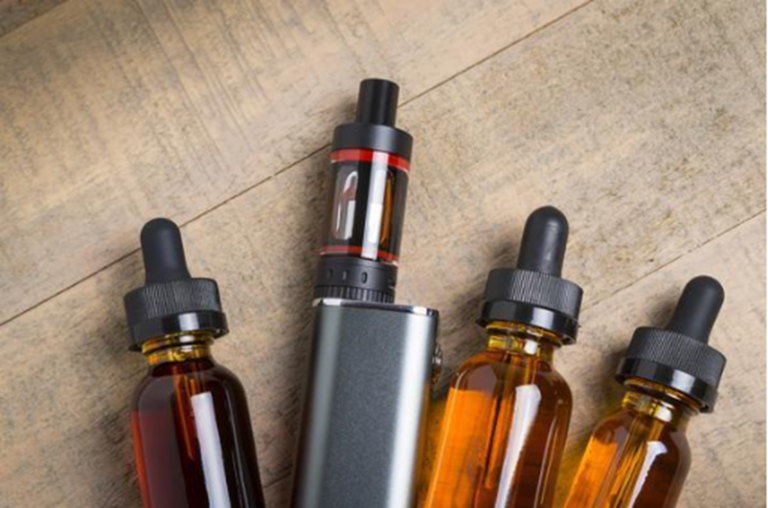Cannabidiol Made Simple: A Guide to Understanding CBD
CBD (cannabidiol) is now getting a lot of attention. You have probably heard about it, either on social media, in stores, or by word of mouth. CBD is commonly recommended as a natural treatment for a variety of sickness. So, what exactly is it? Let’s look at CBD in simple language to assist you learn about its purpose and effects.

What is CBD?
CBD (cannabidiol) is a compound present in the leaves of the cannabis plant. Specifically, it is one of the plants over 100 cannabinoids. CBD, unlike THC (tetrahydrocannabinol), does not give users a “high.” THC is the psychoactive component responsible for cannabis’ intoxicated effects. CBD, on the other hand, is non-psychoactive, making it appealing to individuals seeking therapeutic advantages without mind-altering side effects.
Where Does CBD Come From?
CBD (cannabidiol) can be extracted from either hemp or marijuana. These are two distinct kinds of the cannabis plant. Hemp is high in CBD and low in THC. In comparison, marijuana contains more THC but less CBD. Hemp-derived CBD products are legal in several countries. This is because hemp contains less than 0.3% THC, which isn’t enough to produce a high.
How Does CBD Work?
CBD interacts with the body’s endocannabinoid system (ECS). The ECS is a complex network of receptors in the body. It helps regulate functions like sleep, mood, and pain. CBD influences these receptors indirectly, promoting balance in the body. Unlike THC, which binds directly to ECS receptors, CBD modulates the activity of these receptors. This results in various potential health benefits without altering consciousness.
What Are the Benefits of CBD?
People use CBD (cannabidiol) for a range of reasons. Here are some of the most common benefits:
- Pain Relief: Many people report using CBD to manage chronic pain. It may help reduce inflammation and interact with pain-related receptors.
- Anxiety and Stress: CBD is often praised for its calming effects. It may help reduce feelings of anxiety and stress without causing drowsiness or dependence.
- Sleep Aid: Those struggling with insomnia or poor sleep may find relief in CBD. Some people report that it helps them fall asleep faster and sleep more soundly.
- Anti-Seizure: One of the most thoroughly explored features of CBD is its ability to cure epilepsy. Actually, the FDA has authorized Epidiolex, a CBD-based medicine, for specific types of seizures.
- Skin Health: CBD has grown increasingly common in cosmetics and skincare items. Its anti-inflammatory qualities may benefit people with eczema, acne, and psoriasis.
- Heart Health: Some research suggests that CBD might decrease blood pressure. This, in turn, may improve cardiovascular health.
Different Forms of CBD
CBD is available in many different forms, making it easy for people to choose what suits them best. Here’s a quick overview of the most common types:
- CBD Oil: One of the most popular forms. You can take it directly or add it to food or drinks.
- Capsules: CBD in pill form is easy to consume and convenient.
- Edibles: Gummies, chocolates, and other CBD-infused foods are widely available. They offer a tasty and discreet way to take CBD.
- Topicals: Lotions, balms, and creams infused with CBD can be applied directly to the skin. These are popular for localized pain relief and skincare.
- Vapes: CBD can also be inhaled via vaping. This method offers fast effects but is less common due to concerns over lung health.
- Tinctures: These are liquid extracts that you place under the tongue. They provide a quick and efficient way for the body to absorb CBD.
Is CBD Legal?
Rules and regulations about CBD (cannabidiol) legality is different in different regions of words. Depending of country and state, CBD derived form Hemp is legal in many places with less then 0.3% THC. However, CBD with marijuana also subjected to stricter rules and regulations. Keep in mind the local rules and regulations before using the CBD products.
Is CBD Safe?
According to research, CBD is generally safe for use. However, as with any supplement, it may cause negative effects in some people. This may include:
- Dry mouth
- Diarrhea
- Fatigue
- Changes in appetite
It’s also critical to be mindful of any drug interactions. If you are already taking any other medications, consult with your doctor before trying CBD. This is especially important for those on blood thinners or cardiac medicines.
The Importance of Dosage
Finding the right dosage is important when using CBD. The “right” amount can vary based on several factors:
- Your body weight
- The severity of the condition
- The form of CBD you’re using
- Your individual body chemistry
It’s always a good idea to start with a low dose and gradually increase it. Keep in mind that effects may take time to become noticeable. It may take a few weeks of consistent use before you feel the full benefits.
Is All CBD the Same?
Not all CBD products are created equal. Quality can vary significantly from one brand to another. To ensure you’re getting a good product, look for the following:
- Third-Party Testing: Reputable brands will have their products tested by independent labs. This ensures the product contains what it says it does.
- Full-Spectrum vs. Isolate: Other cannabinoids, such as trace levels of THC, can be found in full spectrum CBD. Isolate is pure CBD with no THC. Several individuals choose full-spectrum for the “entourage effect,” and others choose isolate to avoid THC.
- Transparency: Good brands will provide clear information on the source of their hemp and extraction methods.
The Future of CBD
CBD’s applications may grow much more as study into it continues. Scientists are continually discovering new ways that CBD may help health and fitness. CBD has enormous potential for everything from mental health assistance to cancer treatment. Many of these statements, however, require more investigation.
In the meantime, CBD (cannabidiol) remains a popular natural medicine among many people. Its utility is evident, whether used for pain treatment, anxiety control, or improved sleep. CBD may be a valuable addition to your wellness routine if you are well informed.
Final Thoughts
In recent times CBD has made a huge place in health and wellness sector. It is understood for everyone, the potential benefits of CBD. However, it is a cautious step to approach CBD with care. Always keep in mind regulations and precautions. Begin with a small dose and keep in touch with your respected healthcare professional.
FAQ’s
Will CBD (cannabidiol) make me feel high?
Is CBD (cannabidiol)legal?
How do I take CBD?
Are there any side effects of CBD?






